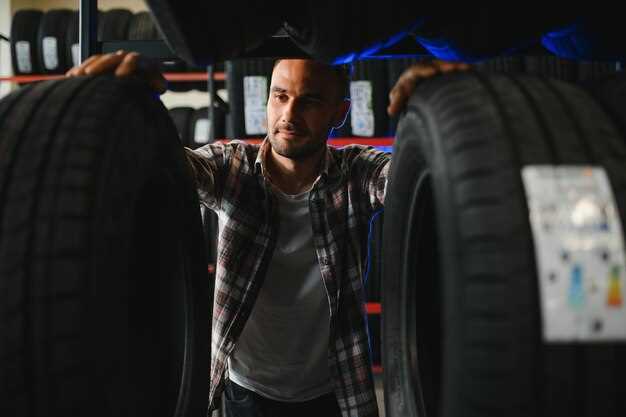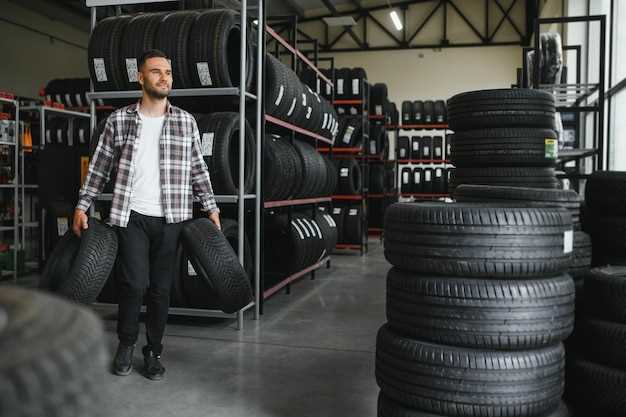Choosing the Right Tires for VW Racing

Choosing the right tires for VW racing is a critical decision that can significantly impact your vehicle’s performance on the track. The right tires not only enhance your vehicle’s grip but also improve handling, stability, and overall speed. Different race conditions, vehicle models, and driving styles all play a crucial role in this choice, making it essential to understand how to select the optimal tires for your specific needs.
The grip of a tire is a vital factor when it comes to racing. Tires designed for high-performance applications often provide superior traction, allowing your VW to navigate tight corners and accelerate quickly out of turns. However, selecting the best tire involves understanding the balance between grip and durability, as excessive grip can lead to faster tire wear. Therefore, analyzing your racing environment and tire specifications is paramount.
In this article, we will explore the various tire options available for VW racing enthusiasts, focusing on how to assess their grip, compound, and tread patterns. With the right knowledge, you will be equipped to make an informed decision that aligns with your racing goals and vehicle dynamics, ensuring that your VW performs at its best on any racetrack.
Assessing Your VW Racing Needs Based on Track Conditions

Choosing the right tires for VW racing is crucial for optimizing performance on different track conditions. Each type of surface presents unique challenges that require careful consideration.
First, identify the main track conditions you will encounter:
- Dry Asphalt: For dry tracks, slick tires provide maximum grip. These tires have a smooth surface design that increases contact with the pavement.
- Wet Asphalt: In wet conditions, tires with grooves or channels are essential. They help to disperse water and reduce hydroplaning, maintaining better traction.
- Off-Road: If your VW racing takes you onto dirt or gravel, look for tires designed for rugged terrains. These typically feature larger treads and reinforced sidewalls for enhanced durability and traction.
Next, assess your driving style and performance goals:
- Aggressive Driving: If you prefer a more aggressive approach, select tires that enhance cornering stability. Look for models with a stiffer sidewall.
- Endurance Racing: For longer races, prioritize tire longevity. Invest in tires designed to provide wear resistance, allowing for extended performance without sacrificing grip.
Finally, consider the weather conditions:
- Temperature Variations: Tire performance can significantly vary with temperature. Ensure that the selected tires are suitable for the average temperature range during your races.
- Humidity Levels: High humidity can affect tire adhesion. Choose tires with properties designed for damp conditions if you race frequently in such environments.
In conclusion, evaluating track conditions, your driving preferences, and the anticipated weather will guide you in selecting the right tires for your VW racing endeavors. Making informed choices will enhance overall performance and safety on the track.
Understanding Tire Types and Their Impact on Grip Performance

Selecting the appropriate tires is crucial for achieving optimal grip in VW racing. Tires are engineered with various constructions, tread patterns, and rubber compounds that significantly affect performance on the track. Understanding these elements can help drivers make informed decisions that enhance their vehicle’s handling and speed.
There are primarily three types of racing tires: slicks, all-weather, and wet. Slick tires lack tread patterns, providing a larger contact patch with the road. This design maximizes grip by allowing the rubber to adhere more closely to the asphalt, making them ideal for dry conditions. For VW racers, selecting a high-performance slick tire can lead to improved cornering and acceleration.
All-weather tires are versatile options that can perform adequately in both wet and dry conditions. While they offer a decent level of grip in varied environments, they cannot match the performance of dedicated slicks in dry conditions. In VW racing, these tires may be chosen for events with uncertain weather, balancing performance and adaptability.
Wet tires feature deep treads designed to channel water away, preventing hydroplaning and maintaining grip on slippery surfaces. While wet tires can offer superior performance in rain, they may compromise speed and grip on dry tracks. For VW racers competing in unpredictable weather, the choice of wet tires can ensure control and safety.
The rubber compound used in tire manufacturing also plays a vital role in grip performance. Softer compounds typically provide better traction due to increased flexibility, allowing the tires to conform to the road’s surface. However, they tend to wear out faster. Conversely, harder compounds last longer but may not achieve the same grip levels, making the choice of compound essential based on race conditions and duration.
Temperature has a significant influence as well. Racing tires operate optimally within specific temperature ranges. Maintaining proper tire heat during a race is essential for ensuring maximum grip. Factors like track surface and weather conditions can impact tire temperatures, and drivers must adjust their strategies accordingly to maintain peak performance.
In conclusion, understanding tire types and their distinct characteristics is crucial for VW racing success. By selecting the right tires based on weather, track conditions, and specific racing goals, drivers can significantly enhance their grip performance, leading to more competitive results on the track.
Evaluating Tire Brands and Models for VW Racing Specifications
When selecting tires for VW racing, understanding the specific requirements of your vehicle model and the racing environment is crucial. Different racing categories may demand varying grip levels, durability, and handling characteristics. Start by assessing the recommended tire pressure and size specifications provided by VW for your racing model.
Next, familiarize yourself with leading tire brands known for their performance in motorsport. Brands such as Michelin, Pirelli, and Dunlop have established a reputation for high-quality racing tires designed to enhance grip and stability at high speeds. Investigate whether they offer specific compounds tailored for the conditions you will face, such as wet or dry tracks.
Different models within these brands may also deliver distinct advantages. For instance, select between slick tires for dry conditions to maximize surface area and grip, or treaded tires designed for wet conditions, allowing for better water dispersal and traction. Evaluate the tread patterns, sidewall stiffness, and rubber compounds to match the performance characteristics required for your VW racing goals.
Additionally, consider the type of racing you will engage in. Time trials may necessitate tires that prioritize speed and light weight, while endurance racing might require options that balance longevity and performance. Look for reviews and performance data from previous races, which can provide insights into the effectiveness of specific tire models used in similar VW racing contexts.
Ultimately, the right tire choice will depend on a combination of vehicle specifications, racing conditions, and personal driving style. Testing various brands and models will help you determine which tires best complement your racing setup and lead to improved performance on the track.



